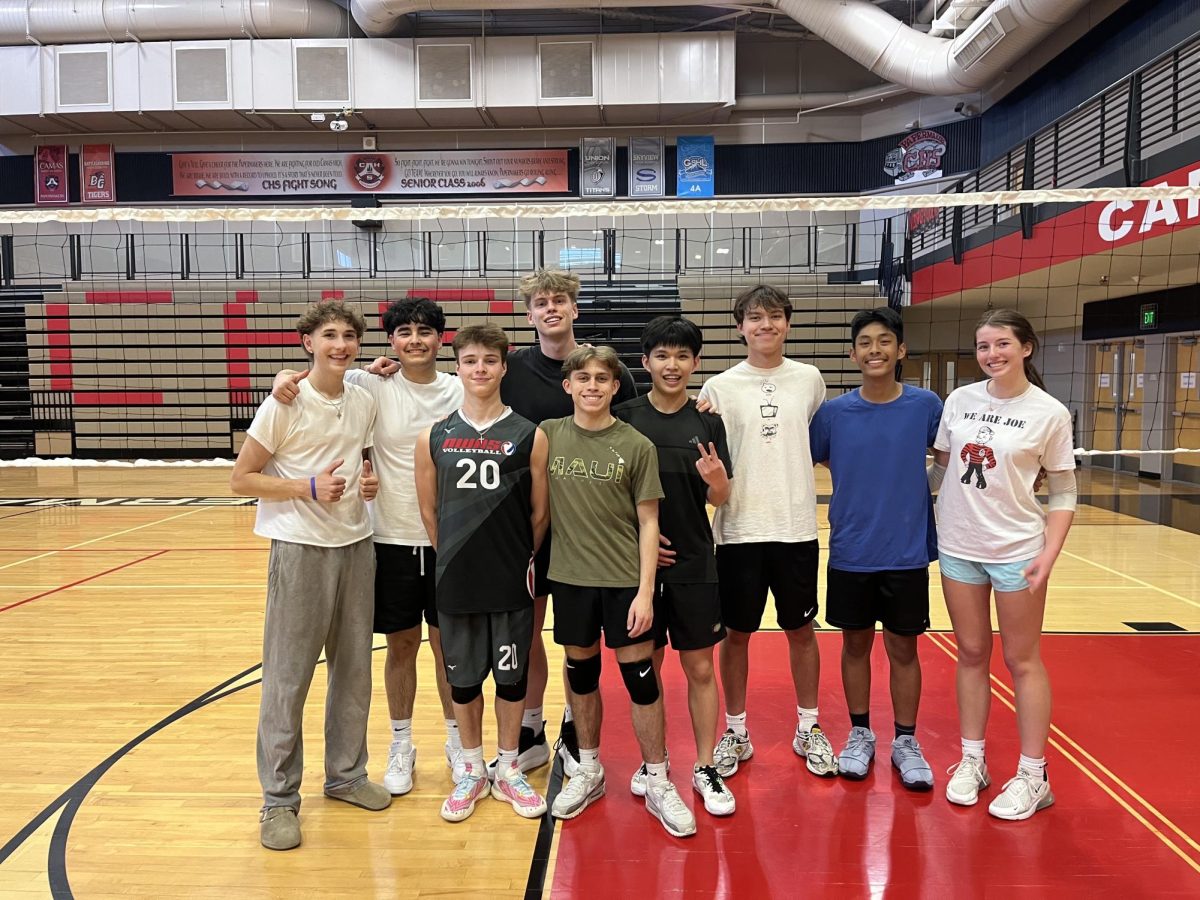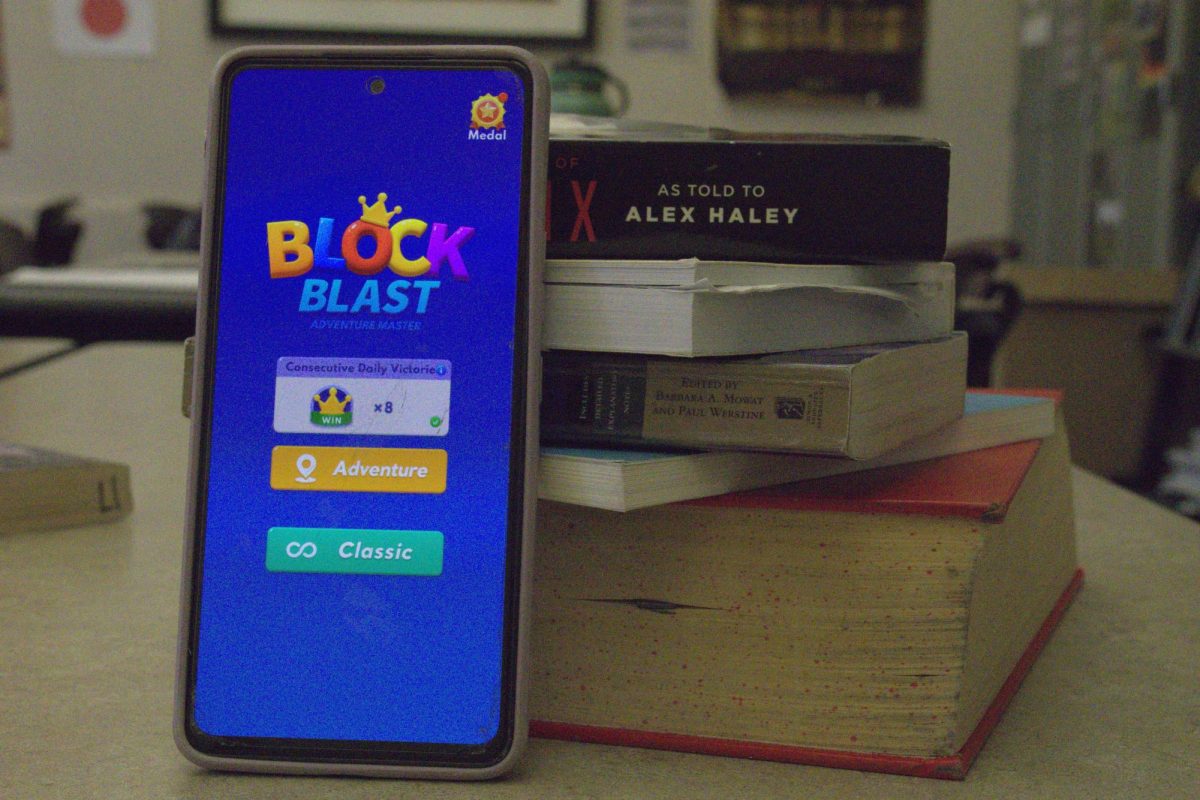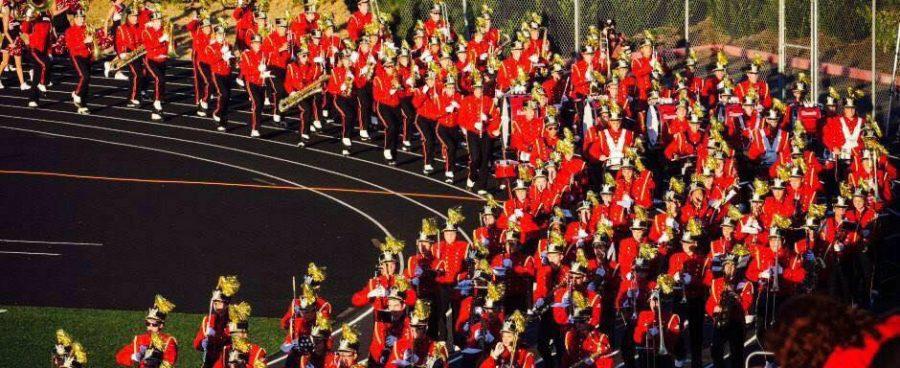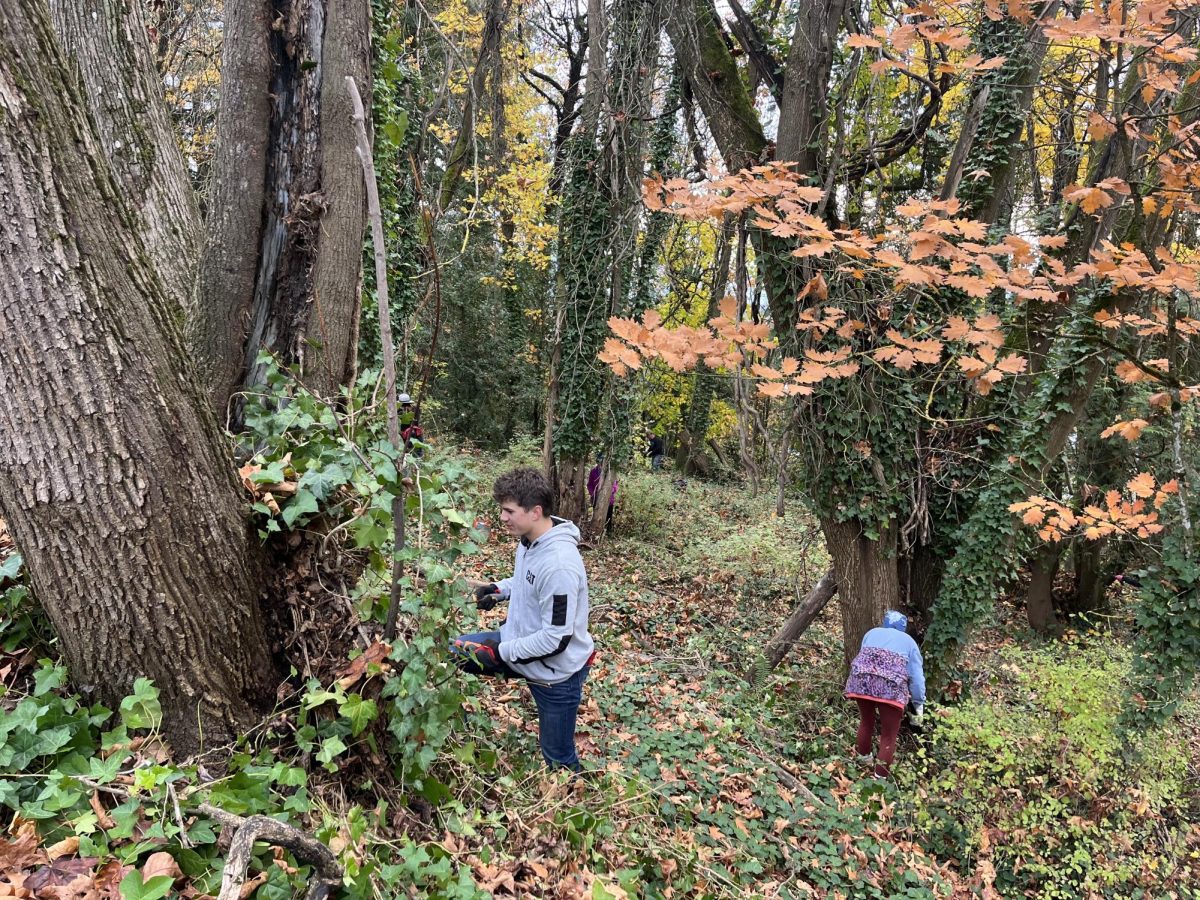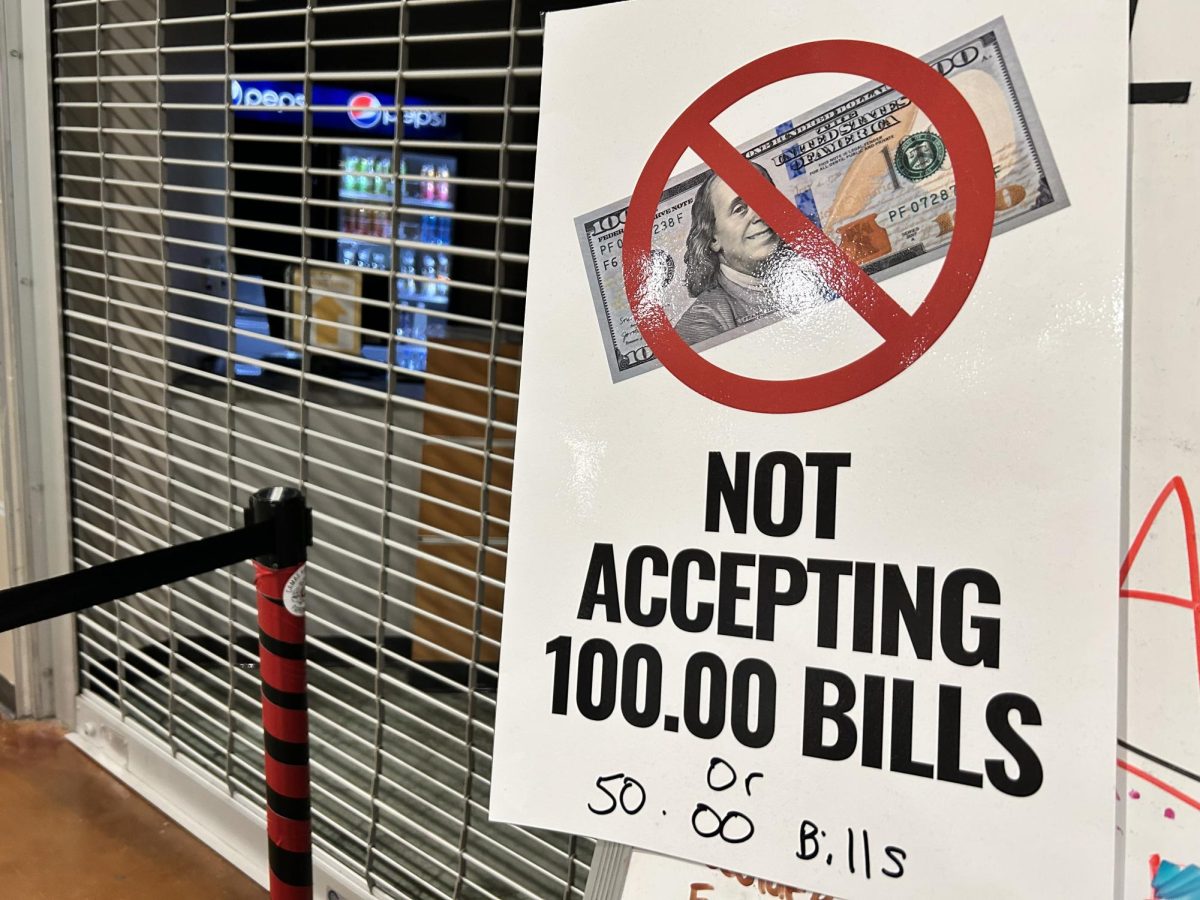
Band: a class offered at Camas High School. It seems like a simple idea, but when taking a closer look, band becomes complicated alarmingly fast. So, here is a peek at the inner workings of the CHS band and what it means to be a band student or “bandito.”
Complications arise since band is not just one single class. There are five main categories at CHS: concert, symphonic, grand symphonic, wind ensemble, and jazz band. Anyone can join concert and symphonic band, and the two classes play the same music before the first concert, switching after that for the remainder of the year. Concert band is known as the ‘beginners band’ and is suggested for underclassmen and new players. Symphonic band is suggested for upperclassmen and focuses less on introducing new band kids, skipping straight into harder music and refining technique. Junior and band drum major, Micah Harimoto says, “Symphonic band is more fun, since the difficulty is increased.” It is important to understand that whichever class a “bandito” takes does not determine their skill level. Scheduling issues often occur and force excellent players to be in concert band or vice versa.
Grand symphonic band is not exactly its own band but rather the collection of both concert and symphonic. At the end of each concert both bands come onto stage to play a few pieces together. Mr. Mancini, the band director at CHS, said he likes to have everyone on stage at the end of the night, unlike when he was in high school.

The night of the first concert not only marks the beginning differentiation between bands, but also the beginning of the dreaded chair tests. In Mancini’s own words, which are definitely backed by at least the majority of the band, chair tests are torture. In reality, chair tests are a way to prove one’s level of understanding of music and playing capability. Students are ranked and put into chair order from best to least. The top players from each section are then chosen to be in the fourth band at CHS: wind ensemble. Wind ensemble is possibly the most confusing part of band and causes many students to wonder where their friends have disappeared to during lunch. Wind ensemble is not its own class, so to make time for it, Mancini essentially creates a new period in between class periods by having wind ensemble participants go directly to band instead of A lunch and stay until B lunch starts, which then becomes their new lunch period. Wind ensemble members push their talents to the limit, learning extremely hard music in short periods of time.
There are two jazz bands at CHS, and they are simply titled “Jazz One” and “Jazz Two”. Both of these bands are audition only and play strictly jazz music. Students who audition for jazz band do not have to be in any other band class. “Jazz One” is the harder of the two bands and usually has under twenty participants. “Jazz Two” is still very select but will have more members. Jazz band members have a lot of fun playing both upbeat, energetic swing pieces and soulful, slow blues songs.

Band is typically divided into two seasons: marching and concert. Concert season is comprised of all five bands previously mentioned. Marching season is all concerned with sports. The marching band at CHS plays at every home football game, doubleheader basketball games, and other assorted events like assemblies. Whereas marching season is all about performance, concert season is concerned with a variety of music and musicality. Though both seasons are fun to be a part of, it seems as though marching season is the band favorite. Most “banditos”say that marching season is more fun because of the high energy levels. Cole Childers, a CHS junior and tuba player in marching season, went as far as to say that the best part of band is “Getting into sporting events for free.”
Whether students join the band for the music, or for the Disney trips, band students stay for the community one becomes a part of. One of the band’s current drum majors, John Stevenson (senior), said that “I love being a part of the band for the performances. I get to play music and have fun with a bunch of friends while doing something other people enjoy.”
When asked what he hopes students gain from being in his classes, Mancini said “The skills to succeed in life, and anti-stupidity.” In teaching music, Mancini finds he has a way of teaching students not just about his subject, but about many others. “Everything relates to something, even attendance.”

“Banditos” believe music is how people relate and communicate with others. Music is a beautiful form of expression for the participants and the audience. Band President Senior Gabriel Mukobi says, “Band gives me the ability to express myself in a way not capable in any other medium.”It is not only a place to hone one’s musical skills but also a place to grow as a person. Senior Ben Puffer thinks the biggest takeaway from being in band is, “learning how to work with others, blending our talents, and learning how to not be in the spotlight.” To be in band, especially a marching band, means allowing oneself to stop being an individual and put efforts into becoming one with a group of people. Mancini says music is infinite, and it is clear his students have this same ideology. “Banditos” work with each other to create masterpieces, and have fun while they are at it. Mukobi agrees: “Band is all about being one band, by truly cooperating and working with others we can accomplish so much more than on our own.”














